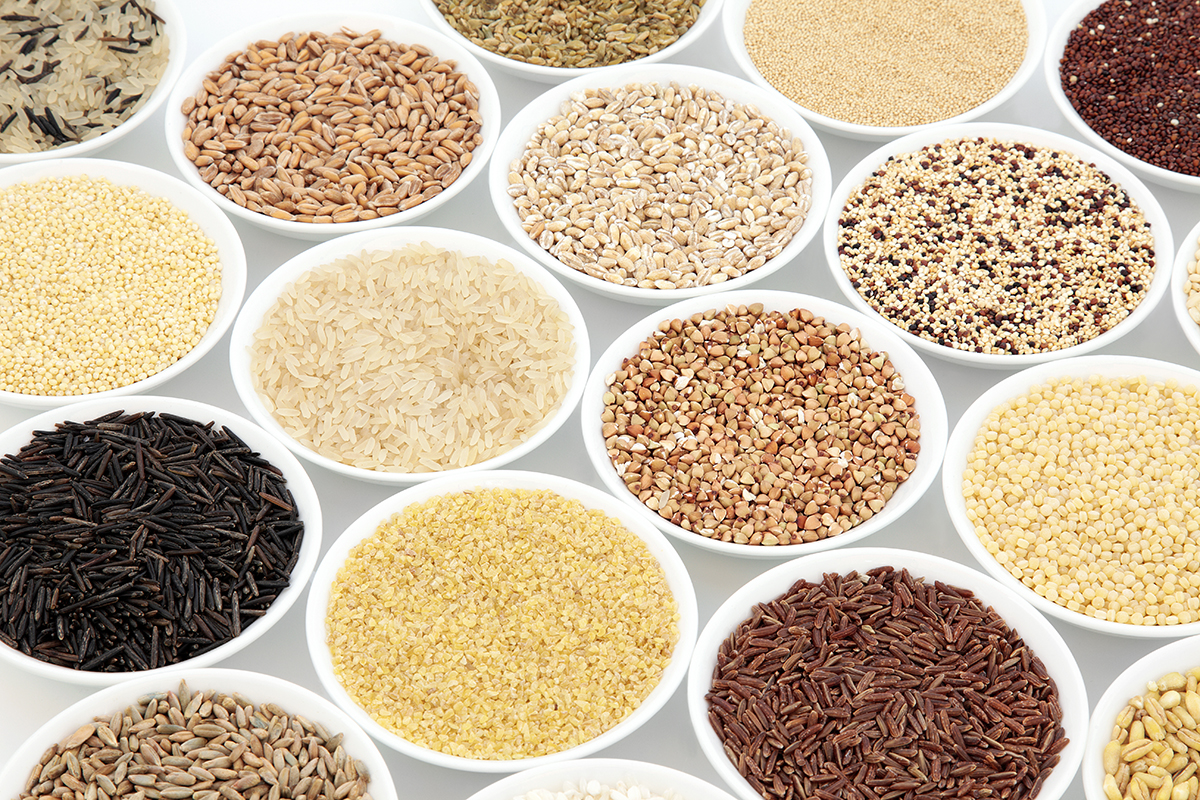Eating Whole Grains May Help You Burn Calories, Study Says

Whole grains photo via istock.com/marilyna
Two sister studies from Tufts University say carbs—specifically whole grains—should be on your plate.
The first study, published Wednesday in the American Journal of Clinical Nutrition, is likely to spark celebration in the pro-carb community: Eating plenty of grains, it says, may help you burn more calories each and every day.
The caveat—there’s always a caveat—is that you must eat whole grains, instead of refined grains, to jump-start your calorie burn. (Choosing oatmeal instead of white toast, say.) By switching from refined to whole grains, and upping fiber intake as a result, study subjects shed up to 100 extra calories per day, through a combination of a higher resting metabolic rate and “greater fecal losses.”
“The extra calories lost by those who ate whole grains was equivalent of a brisk 30 minute walk—or enjoying an extra small cookie every day in terms of its impact,” senior author Susan Roberts said in a statement.
Researchers from Tufts’ Jean Mayer USDA Human Nutrition Research Center on Aging formulated diets for 81 people during an eight-week study. After two weeks, they were split into a whole grain and a refined grain group. The groups ate almost identically, except for grain type and fiber content, but the whole grain group lost more calories each day. This phenomenon happened in a regimented study environment, but the results suggest that similar effects could be seen outside the lab.
“This study helps to quantify how whole grains and fiber work to benefit weight management, and lend credibility to previously reported associations between increased whole grains and fiber consumption, lower body weight, and better health,” first author Phil Karl said in the statement.
The second study, also published in the American Journal of Clinical Nutrition, further emphasizes the impact whole grains may have on overall health. Its findings suggest that people who eat lots of whole grains, rather than refined grains, see slight improvements in gut and immune health.
Using the same study population, Tufts researchers took on the unpleasant task of analyzing the bacterial content of individuals’ stool samples. Specimens from participants in the whole grain group, they found, contained more good gut bacteria, which scientists are increasingly equating with overall well-being. Specifically, whole grain eaters had higher levels of bacteria associated with healthy immune function, and lower levels of strains associated with inflammation.
Whole grains also seemed to boost levels of immune cells in the blood, though researchers stress that the differences in both stool and blood were minor.
These studies may be surprising, given our culture’s current fascination with cutting carbs at all costs. But in reality, a host of research points to health benefits derived from whole grains—everything from a longer life to a reduced risk of getting heart disease, type 2 diabetes, and even cancer.
A bagel a day may not keep the doctor away, but a bowl of barley, sorghum, or brown rice just might.


